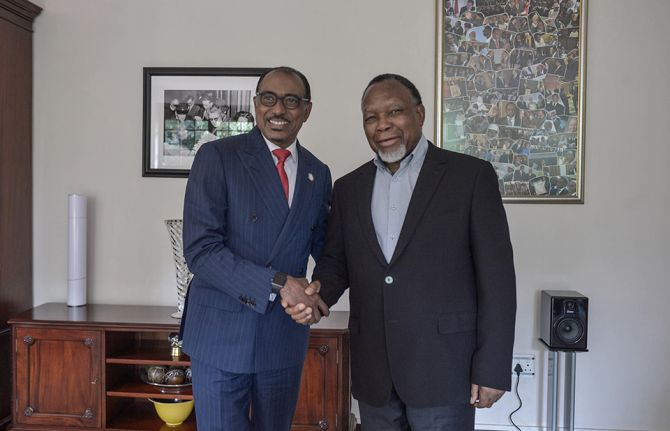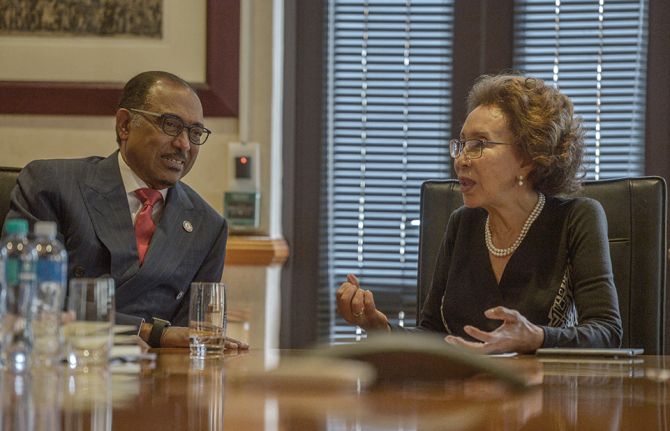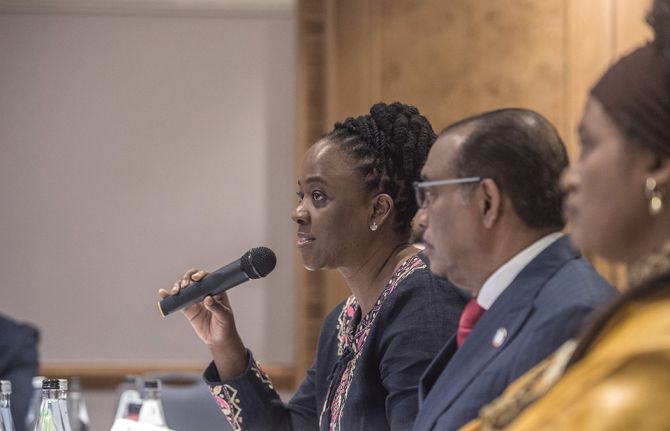



Feature Story
Keeping up the momentum in the global AIDS response
24 April 2019
24 April 2019 24 April 2019During a visit to South Africa, UNAIDS Executive Director, Michel Sidibé, has warned that the global AIDS response is at an inflection point, at which gains to date could easily be reversed unless urgent efforts are made to reach targets for 2020 and achieve ambitious goals for the decade beyond.
In a meeting with South Africa’s Minister of Health, Aaron Motsoaledi, Mr Sidibé congratulated the country on its progress made to date and encouraged the government to accelerate action to reach ambitious targets that will put the HIV response on a sustainable path to ending the AIDS epidemic by 2030. Mr Sidibé said it was time to fully leverage the power of communities to close the remaining gaps to the UNAIDS 90–90–90 treatment targets.
In a meeting with the First Lady of South Africa, Tshepo Motsepe, Mr Sidibé encouraged her to use her voice and outreach capacity to empower people who lacked visibility and access to services, particularly emphasizing the importance of adolescent girls to have access top the human papillomavirus vaccine to prevent cervical cancer.
Ms Motsepe indicated her willingness to engage on national and international issues for the sake of social development. “Health is not simply the absence of disease,” she said. “Some call me the First Lady, some call me the President’s spouse, but whatever you call me I am a social worker for South Africa.”
Mr Sidibé also met with former South Africa President Kgalema Motlanthe and urged him to keep people alert to the serious risks of losing momentum in the AIDS response and especially the need to engage more men in HIV testing and sustained treatment.
Mr Motlanthe, who is a member of the Champions for an AIDS-free Generation in Africa, expressed his appreciation for the efforts of Mr Sidibé over the course of his career, including as UNAIDS Executive Director. He noted that Mr Sidibé has repeatedly identified and advocated for crucial steps to advance the AIDS response.
“Your timing has always been spot-on,” he said.
While in Johannesburg, Mr Sidibé addressed the directors of UNAIDS country offices across eastern and southern Africa. He reminded them of the primary purpose of UNAIDS—to serve the needs of people living with HIV and those at risk of infection. As a health organization, he stressed that UNAIDS plays a unique role in advocating for the rights of vulnerable people, engaging strongly with civil society and insisting that nobody should face discrimination for how they live or who they love.
“UNAIDS is not an organization driven by logistics or materials,” he said. “It is an organization that puts people at the centre.”
“The AIDS response, especially in eastern and southern Africa, offers lessons and approaches to ensure sustainability through political leadership, resource mobilization and community engagement,” he continued.
“With people behind you, you can really make the world better.”



